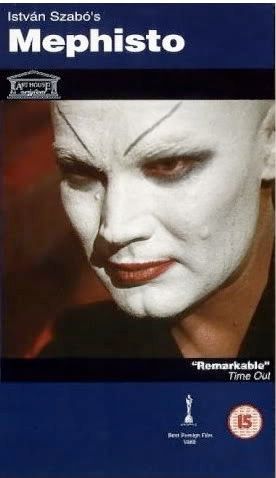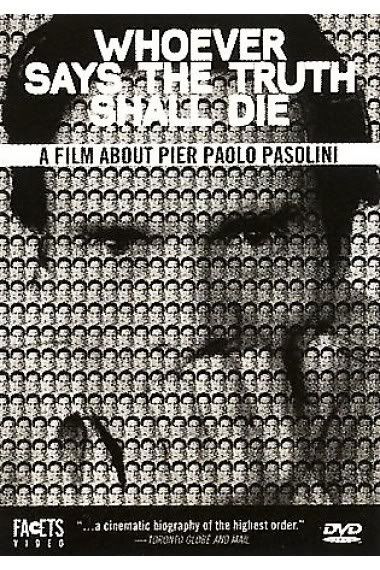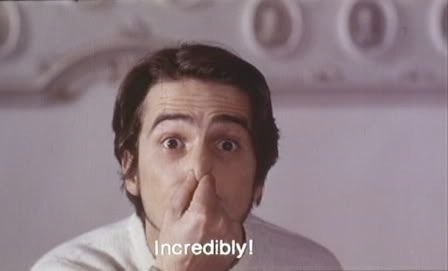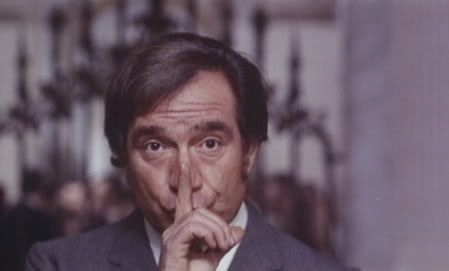Mephisto (Istvan Szabo, 1981)
 With Oscar season right behind us (I'm not nearly interested enough in them to post what I thought, except that the more I think about it, the more I realize how badly Children of Men got screwed), I thought I'd take a look at Istvan Szabo's 1981 Best Foreign Film winner Mephisto, the story of a German actor so hungry for fame and power that he's willing to cooperate with the Nazis in order to get it. The actor, Hendrik Hoefgen, played by Klaus Maria Brandauer, starts his career in Communist theater in Hamburg, but moves to Berlin in pursuit of fame and glory. While in Berlin, the Nazis win the election, but Hendrik turns a blind eye, even when his wife leaves the country and becomes involved in the resistance. He wins the fame he so desperately desired, but also is associating with people that are deeply involved in the Nazi party. Mephisto, the role that gained Hendrik fame, appears in his life in the form of a Nazi general who loves his performances and takes him under his wing, eventually making Hendrik the manager of the Prussian State Theater. But what about Hendrik's soul? That is the question with which Szabo leaves the audience. The performances across the board are solid, especially Brandauer as Hendrik and Karin Boyd as Juliette, his black lover who tries to be his conscience (and with whom he sees no conflict with his passive support of the Nazis). The film is based on Klaus Mann's novel, which was based on the real-life story of Gustaf Grundgens, but much of the film still feels very implausible. It was hard for me to buy that a man so dedicated to his socialist ideals in the beginning of the film (there are many speeches where he declares that theater has to have a purpose) to just throwing them aside for fame (he begins referring to himself constantly as "just an actor," trying to place blame for his actions outside of his self). I definitely understand that there are many people who give up their ideals for fame, especially during such hard times as Nazi rule in Germany, but I don't expect such willing, blind change from someone as formerly dedicated as Hendrik is portrayed. Near the end of the film, even when Hendrik claims to be doing revolutionary things such as putting on Shakespeare in the Third Reich, it is still only because the Nazis saw Shakespeare as one of theirs. The last third of the film, when Hendrik becomes friends with many powerful Nazis (but, as is explicit in one powerful scene, still has no power himself), is filled with shots of Hendrik standing in front of giant Nazi flags, to which he has sold his soul. The Mephisto legend comes to life in Hendrik's story, and Szabo's film, but not without problems. I was frustrated with the characters, but because of the times and the place, how could I not have been? The movies makes one wonder what he or she would have done, and that's a very powerful thing in film. 6/10 Labels: 1981, istvan szabo |






